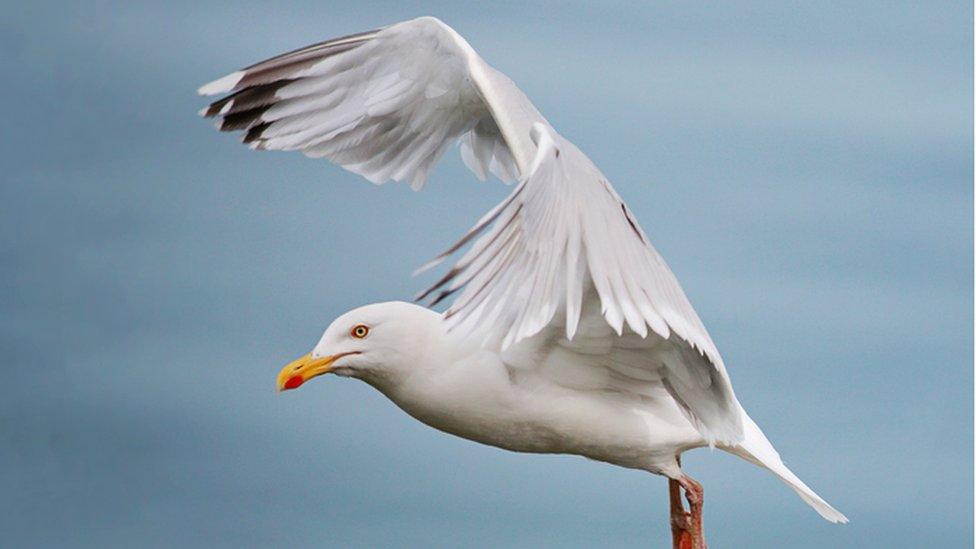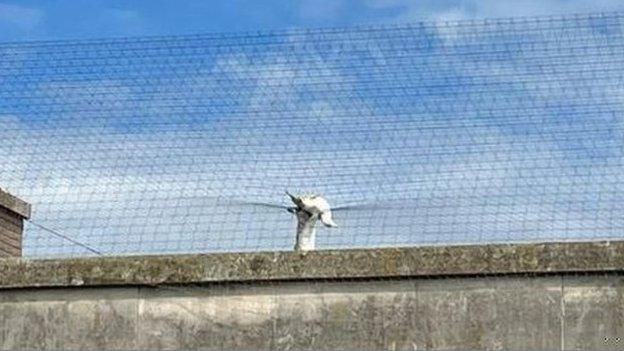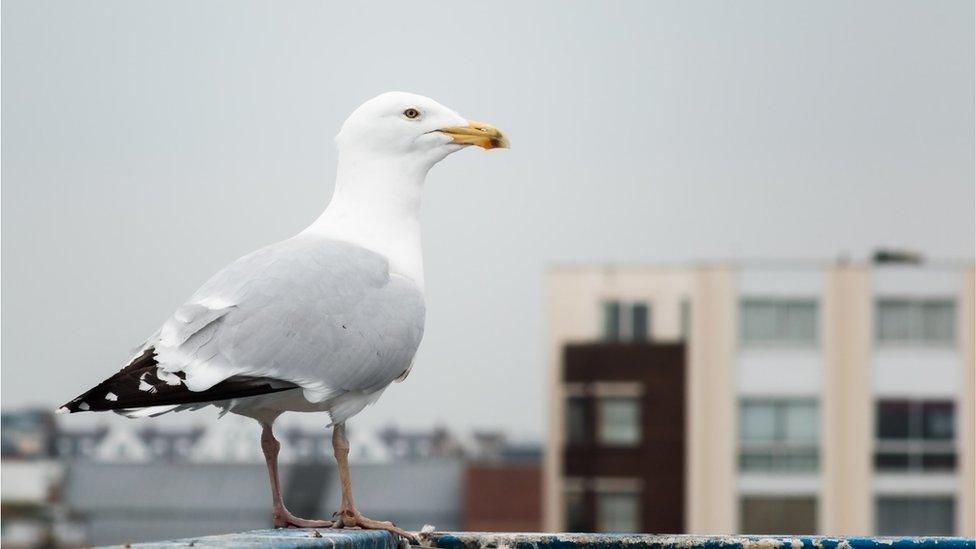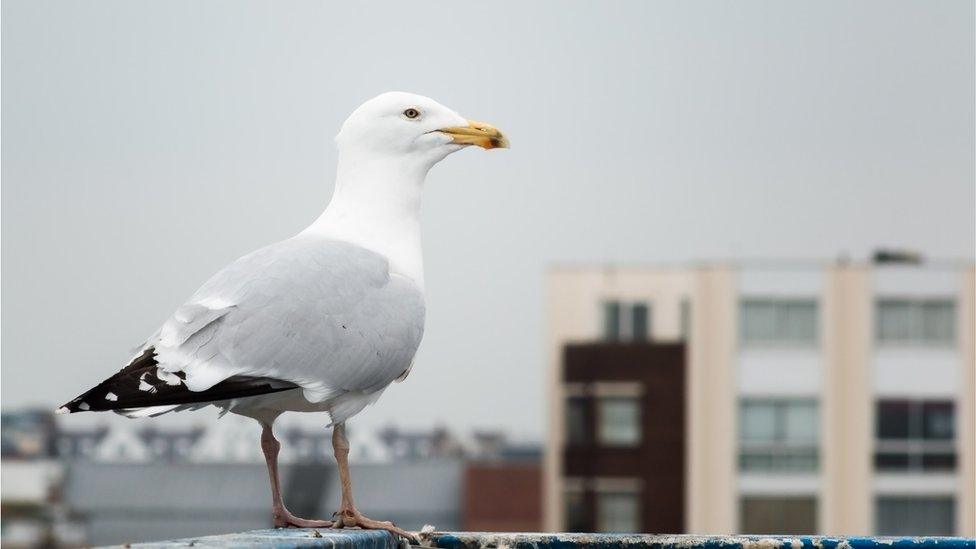Budget to tackle Worcester's gull problem slashed
- Published

So far the council has removed 137 nests, 255 eggs and 17 chicks
The budget to tackle gulls in Worcester has been slashed by 50%, the council said.
The city council will reduce its spend on gull control from £70,000 to £35,000 due to financial problems.
Among the worst-affected areas are The Tything, the High Street, Copenhagen Street and Fish Street in the city centre as well as areas in Diglis and Lower Wick.
About 135 nests, 255 eggs and 17 chicks have been removed this year.
'Staying here permanently'
Councillors had agreed to double the budget to £70,000 for the past 12 months but with funds tight, the council said it would be returning to its base £35,000 budget next year.
"People are woken up early from screeching, cars and houses are covered in mess and they are a danger," councillor Alan Amos said. "We have more than ever before and they are not coming and going, they are staying here permanently,"
He added: "It's an endemic problem made worse by inaction. The problem is going to get out of control."
The council has tried several methods over the years, including swapping real eggs with dummy eggs, helping businesses to "gull-proof" roofs and chimneys using a cherry-picker, as well as removing nests, eggs and chicks.
A hawk has also been used in the past to scare gulls away from Cathedral Square and other parts of the city centre.
To be allowed to remove nests, eggs and chicks, the council has to apply for a licence from Natural England, as all wild birds are protected under the Wildlife and Countryside Act 1981.
The city council's environment committee is due to discuss the matter on Tuesday.

Follow BBC West Midlands on Facebook, external, X, external and Instagram, external. Send your story ideas to: newsonline.westmidlands@bbc.co.uk, external
Related topics
- Published6 May 2022

- Published30 April 2020

- Published30 October 2019
